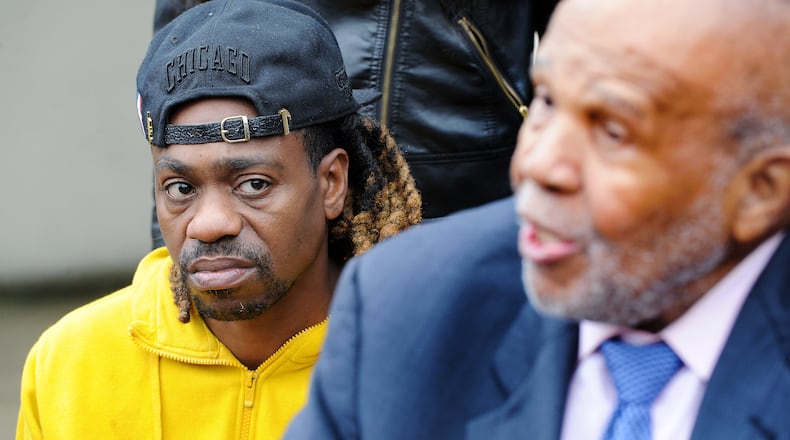The legal action also seeks punitive damages.
In the petition, Owensby claims that officers Vincent Carter and Wayne Hammock conducted a warrantless search of his vehicle and illegally seized his money, which he told the Dayton Daily News was his life savings.
The petition says police officers only can seize property when it appears to be contraband or is evidence related to a crime.
“It it were, otherwise, the officer could cart off anything in the vehicle despite the rights of the motorist he is bound to respect,” says the petition, filed by James Willis, a Cleveland attorney.
Dayton Police spokeswoman Cara Zinski-Neace said, “we cannot comment on the seized money,” because of an ongoing criminal investigation.
Owensby last month was found guilty of window tint and child restraint violations as a result of the traffic stop.
Both charges were minor misdemeanors, and he was fined $150 for each violation.
Credit: Jim Noelker
Credit: Jim Noelker
The petition says the officers that stopped and arrested Owensby did not have probable cause to make that arrest and violated his rights by searching his vehicle.
“... law enforcement officers cannot seize private property without probable cause to do so,” the court filing states.
Police said they pulled Owensby over because the tint of his window was too dark, and they observed him leaving a suspected drug house.
Police officers ordered Owensby out of his vehicle and told him they were bringing a drug dog to do a “free air” sniff of the car.
Owensby told officers he is paraplegic and could not exit the vehicle. He asked for a “white shirt” — a police supervisor.
Body camera footage shows police dragging Owensby out of the vehicle by his arm and hair and handcuffing him and putting him in the back of a police vehicle.
Officers claim the police dog indicated the money they found in Owensby’s car had been in close proximity to drugs.
The incident sparked protests and outrage, and some community members have called on the police department to apologize and suspend and fire the officers involved.
Representatives of the Dayton police union say the arrest was handled correctly and complied with department policies.
Owensby in 2016 also filed a lawsuit against the Dayton Police Department asking that authorities return $10,000 they seized from him in 2008.
Owensby said that money was his savings; police said they confiscated it because it had been in close proximity to drugs.
Owensby may pursue other legal action against the city: Willis recently said his client plans to file a federal lawsuit.
About the Author



